George Orwell
The real name of George Orwell was Eric Arthur Blair, who used this pseudonym as his pen name and was popular by this name only. Being born on 25th June 1903, Blair was a journalist as well as an English novelist and critic. His works mainly included easily understandable proses, criticism of society and strict opposition to totalitarian governments. He also wrote in support of democratic socialism. George Orwell, as Blair was popularly called, wrote poetry as well as literary criticism, fiction and strongly critical journalism. His famous works include the novel 'Animal Farm' which is an allegory and came out in 1945. Another very famous work by Orwell is the novel 'Nineteen Eighty-Four', which came out in 1949 and is a novel about a dystopian world. Brief descriptionThe writer has written non-fictional works as well, including 'The Road To Wigan Pier', which came out in 1937. It is a documentary about his experience of living the life of a working class in the industrial side of north England. Another non-fiction is 'Homage To Catalonia', a novel written in the year 1938 which talks about the time when he was soldiering for the Republican faction of the civil war in Spain, which went around from 1936 to 1939. These non-fiction works are equally respected by the critics, just like his political and literary essays and his works on culture and language. 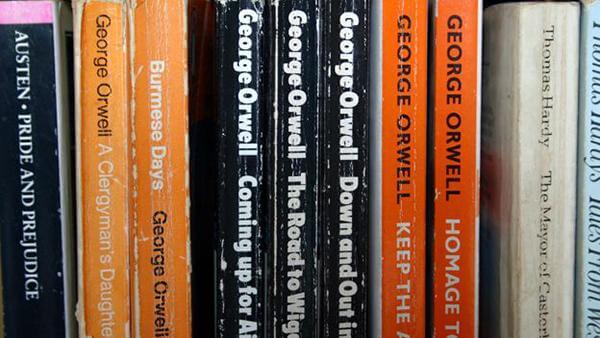
Eric Arthur Blair took birth in India and completed his schooling in England, where he was raised as well. After completing his education, Blair got the job of an imperial policeman in the city of Burma, soon after which he returned to Suffolk, England. This is where he started his career in writing by the pen name George Orwell. The writer's pen name got its inspiration from his favourite location, i.e., the River Orwell. Orwell used to earn his living by writing journalism pieces occasionally and also by working as a bookseller or teacher during his time in London. It was only in the late 1920s to the early years of the 1930s that his career in writing flourished, and his books were published for the first time. Orwell was injured due to fighting in the Spanish civil war of the late 1930s, which resulted in his ill health for the first time and also his return to England. During the time of the second world war, he was working as a journalist and for the BBC as well. His famous book, 'Animal Farm' brought him recognition during his living days. During the last years of his lifetime, the writer dedicated himself to work on his dystopian novel, 'Nineteen Eighty-Four,' and moved between Scotland and London from time to time. The novel got published in 1949, one year after the writer lost his life. Blair's work is very influential in pop culture, and the adjectives like Orwellian in pop culture describe authoritarian and totalitarian practices done by the government or society. These adjectives have become a part of the English language, just like many of his newly coined words like 'Thought Crime', 'Thought Police', 'Big Brother, 'Doublethink' and so on. The accomplishments of Orwell are immense in the field of literature as in 2008, and the writer was ranked 2nd in the list of 'The fifty greatest British writers since 1945'. Early YearsThe writer, as mentioned above, was born on 25 June 1903 in Bengal during the time of British rule in India. He was born into a family which was, as he said, on the 'lower upper middle-class' level of social order. Charles Blair, who was the great grandfather of the writer, was a countryman with great wealth and power. Thomas Richard, the grandfather of the writer, had the job of an Anglican clergyman. The name of Blair's father was Richard Blair, who was a Sub-Deputy Agent of Opium and worked in the Opium Department of the Civil services of India. His duty was to keep track of the storage and production of Opium as it was to be sold in China. Blair's arrival in England was because his mother, Ida Mabel Blair, who was brought up in Burma, took his elder sister Marjorie to England along with the writer. He was only one year old when he moved there. Blair also had a sister who was five years younger than him. Her name was Avril. In the year 2014, restoration started at Orwell's ancestral house, which was also his birthplace in Motihari, Bihar. 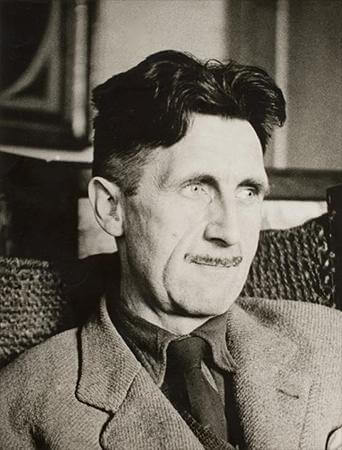
It was the year 1904 when Ida Blair, his mother, settled at Henley-on-Thames in Oxfordshire, England, with her children. The writer grew up in the presence of his mother and sisters. Blair's father was not there for most of his childhood, and apart from a short visit in 1907, Blair didn't get to see his father until 1912. At the age of five, the writer attended a convent school in their residential area, which his elder sister also attended. The school was a Roman Catholic school which was operated by French Ursuline sisters. Even though his mother didn't want him to attend a convent school but instead have a public school education, the problem was that their family couldn't afford to pay the fees. It was through Ida's brother, Charles Limouzin's social connections, that the writer was able to gain his scholarship to St. Cyprian's School in Eastbourne. He arrived there in 1911 and studied there for almost five years, and returned to his home only on his holidays. The writer didn't know much about the reduced fees, but he soon discovered that his family condition was not that well, and he belonged to a poor family. Blair didn't like his school a lot, and he wrote an essay after many years whose title was, 'Such, Such were the Joys'. The essay was published as a reward for his time there. The writer met Cyril Connolly at his school St. Cyprian's. He also became a writer and worked as an editor for Horizon, and he published a number of Orwell's essays. Before the start of the First World War, Orwell's family moved 3 km away from Shiplake, Oxfordshire. This was the place where the writer got familiar with the Buddicom family, especially Jacintha, who was the daughter of the family. A very interesting story about Orwell's first encounter with Jacintha is that when he first met her, he was standing on his head in an open field nearby. When the girl questioned him, he answered that people are noticed more when they are standing on their heads rather than when they are on their feet. These kinds of words explain his perception and intellect, which made him one of the best American novelists. Orwell and his neighbour used to read and write poetry together, and both aimed at becoming good writers. Orwell wanted to write a text in the same style as H. G. Well's 'A Modern Utopia'. This was the period of his life when he enjoyed a lot of outdoor activities like fishing, shooting and so on with his neighbours. Literary Career and LegacyOrwell, to modern readers, is generally introduced as a novelist, the reason being his tremendously successful titles like 'Nineteen Eighty-Four' and 'Animal Farm. The former gives an idea of life under Totalitarian rule and a dystopian world. The latter is believed to be a reflection of the period after the Russian Revolution and the rise of Stalinism after the deterioration of the Soviet Union. Many times Nineteen Eighty-Four' is compared to Brave New World by Aldous Huxley. Both of these novels have a powerful dystopian theme, warning of a world in the near future where social life is under the complete dominance of machines. 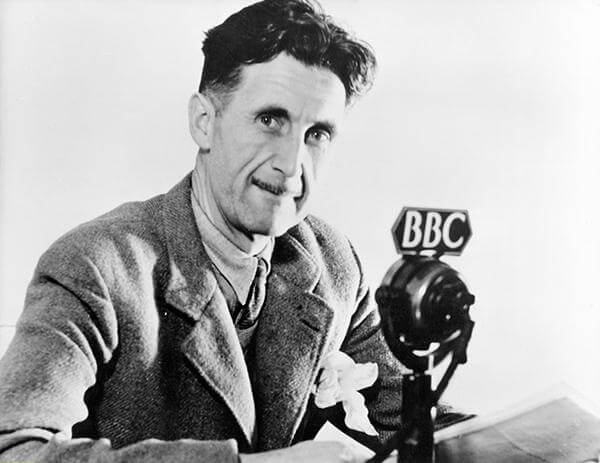
Nineteen Eighty-Four and Fahrenheit 451 by Ray Bradbury were awarded the Prometheus Award, in 1984, for all of their word and contribution to dystopian literature. Animal farm, in 2011, was also listed among the ones who were honoured with the Prometheus Award. On the BBC's The Big Read poll, in 2003, Nineteen Eighty-Four was listed at 8th position and Animal Farm at 46th. In 2021, Nineteen Eighty-Four was rated third in a list of "The best books of the past 125 years" by the readers of the New York Times Book Review. Throughout a large part of his career, the writer was popular for his work in journalism, in reviews, essays and columns in print media such as magazines and newspapers. The books written by the writer that reported things were also appreciated. His book 'Down and Out in Paris and London' provides an account of the period of misery and poverty in these places, and the book 'The Road to Wigan Pier' gives a description of the conditions of poor people living in northern England and the division of class there. In the eyes of Irving Howe, George Orwell was the best among all the essayists since the time of Hazlitt, or maybe even Dr Johnson.' 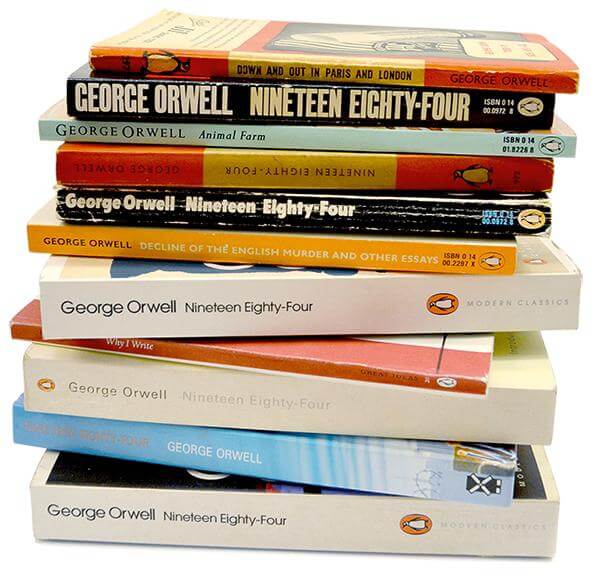
The most "English" among all Orwell's works was his last novel that came out just before World War II, the protagonist, George Bowling's peaceful, Thames-side Edwardian childhood, mixes fairly with the alarms of the II world war. The pessimistic theme of the novel talks about the glory of Old England being shattered by the ideas of industrialism and capitalism, leading to the rise of new external threats. In simple words, George Bowling (the protagonist) put forward the totalitarian theory which was put forward by Franz Borkenau, Ignazio Silone, Orwell as well as Koestler:- "Old Hitler is not like the older chaps who just tortured people, executed and cut their heads off just because they found it amusing. In fact, they are something entirely different and new, something completely alien which is never heard before." Orwell as a Literary CriticOrwell, throughout his life, majorly saw himself as a book reviewer. His reviews were trusted and well-known resulting in having a great influence on the literary critics of that time. Orwell wrote many critiques of different novels and plays. He also wrote a review on the play "Arms and the man" written by George Bernard Show which, he thought, was the best play among all his works by him. He also said that this play would stay relevant to society for a long period as it had the theme that war is not actually an incredibly romantic adventure at all. He wrote an essay in 1945, 'In Defense of P.G. Wodehouse, that had an interesting assessment of the works by Wodehouse, and he also stated that the broadcast done from Germany during the time of the war did not turn him into a traitor. Orwell found The Ministry of Information accountable for the over-exaggeration of Wodehouse's deeds because of some hidden propaganda. Lifestyle and DeathGeorge Orwell used to smoke a lot, and he also rolled his cigarettes himself from shag tobacco which was a very strong weed, even though the writer had problems with his bronchi. His strong liking for the rough lifestyle that he practised often resulted in problems for him. Orwell was used to the comforts of the working classes. 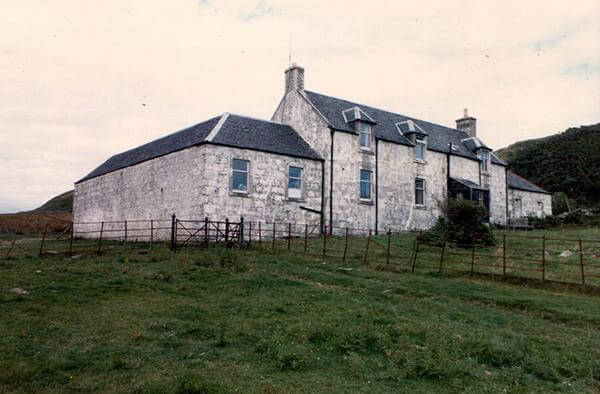
As mentioned that the last novel written by the writer was Nineteen Eighty-Four; he was suffering from tuberculosis at the time when he was writing this masterpiece. The writer could not live to see the success of his work. He wrote the ending pages of the novel while sitting on a far-off island, which he had bought with the money he got from the success of 'Animal Farm. He used to write in between the time when he was in the hospital and couldn't survive long. He lost his life in January 1950. ConclusionGeorge Orwell was a great novelist, and his contribution to English literature is remarkable. He, through his writings, brought in revolutionary views, and newscasters talked about an Orwellian future even in this era. Orwellian dystopia is quite famous and a kind of prophecy for future generations. Orwell's new inventions of words, especially in the novel 1984, like 'newspeak', 'thought crime', 'double think' etc., are accepted by the English language and are also a part of the popular language today. George Orwell also used to write diaries, and careful reading of that diary could bring out his skills and how he converted his normal experiences into some of his 'the best' works of all time. Just like the fictional novels, such as the allegorical novel 'Animal Farm' which brings out a deeper understanding of society through Orwell's lenses, his non-fiction works by him are also very important from a literary as well as critical perspective. The writer, despite his near-Victorian origin, remained contemporary, and his works were more relevant to the public than many authors of even later years.
Next TopicVincent Van Gogh
|
 For Videos Join Our Youtube Channel: Join Now
For Videos Join Our Youtube Channel: Join Now
Feedback
- Send your Feedback to [email protected]
Help Others, Please Share









